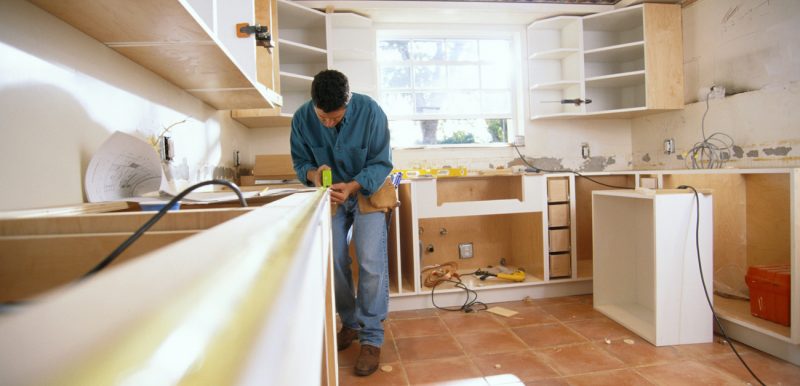Investors are growing concerned that it may be more difficult to make money in flipping homes amid a frenzy of home buying activity lately that has sent home prices climbing.
Home flipping profit margins dropped in the first quarter. Only 2.7% of all single-family homes and condos in the first quarter were considered a house flip—transactions that occurred within 12 months of one another. That is down from 4.8% during the fourth quarter of 2020 and 7.5% a year earlier, according to a new report from ATTOM Data Solutions, a real estate research firm.
Gross profits are dropping, too. On the typical home flip—which reflects the difference between the median sales price and the median price paid by investors—gross profit declined nationwide in the first quarter to $63,500. That's down from $71,000 in the fourth quarter of 2020. Profit margins for returns in the first quarter translated into a 37.8% return on investment compared to the original sales price.
Investors who are still jumping in do appear to be trying to speed up transactions to capitalize on the current market. Home flippers who sold homes in the first quarter took an average of 159 days to complete their transactions, the lowest level since the third quarter of 2013, according to the report.
“It’s too early to say for sure whether home flippers indeed have gone into an extended holding pattern,” says Todd Teta, chief product officer at ATTOM. “But the first quarter of 2021 certainly marked a notable downturn for the flipping industry, with the big drop in activity suggesting that investors may be worried that prices have simply gone up too high. After riding the housing boom along with others for years, they now might be having second thoughts. Whether this is the leading edge of a broader market downturn is little more than speculation.”
The following are additional highlights from ATTOM Data Solutions’ “First Quarter 2021 U.S. Home Flipping Report”:
- Home flipping rates fell in 70% of 108 local markets tracked. The largest quarterly decreases—down by nearly 70% or more— in home flipping occurred in Memphis, Tenn.; Lakeland, Fla.; San Francisco; Columbia, S.C.; and Palm Bay, Fla.
- The largest increases in quarterly home-flipping rates occurred in Springfield, Mass. (up 114%); Albuquerque, N.M. (up 103%); Springfield, Ill. (up 95%); South Bend, Ind. (up 86%); and Boston, Mass. (up 79%).
- Homes flipped in the first quarter were sold for a median price of $231,500, down 3.9% compared to the fourth quarter. This marked the first quarterly decrease in typical resale prices since the fourth quarter of 2018 and the largest quarterly decline since the first quarter of 2011, according to the report.
- The largest quarterly increases in profit margins during the first quarter were in Springfield, Mo. (ROI up 120%); Provo, Utah (up 118%); Omaha, Neb. (up 101%); Lynchburg, Va. (up 101%); and Pittsburgh, Pa. (up 88%).
- The biggest quarterly investment-return decreases in home flipping during the first quarter occurred in Memphis, Tenn. (ROI down 64%); Austin, Texas (down 54%); Houston (down 50%); New Orleans, La. (down 38%); and Louisville, Ky. (down 37%).
- The portion of flipped homes in the first quarter that were purchased with cash by investors rose to 59.2%. On the other hand, about 41% of homes flipped in the first quarter had been bought with financing.
Source: ATTOM Data Solutions













